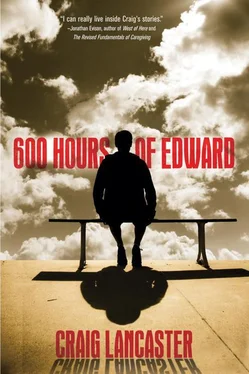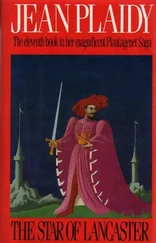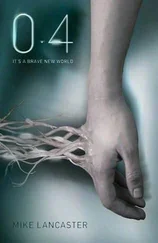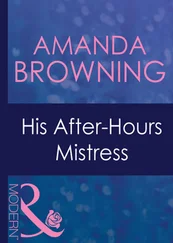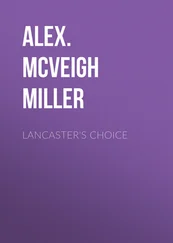Laughter ripples through the room.
“The thing is, with Ted, damn—he might have been serious!”
More laughter.
Some are touching:
“When Mary got sick, Ted and Maureen were always there with whatever we needed, often before we knew we needed it,” James Grimes, one of the biggest developers in town, is saying. “At his own expense, he chartered a jet to take us to Seattle for that last attempt at saving her life. I don’t think we would have had the chance otherwise—that’s how touch-and-go everything was at that point. A better friend, I never had.”
Some are what Dr. Buckley would call self-indulgent:
“Ted always told me I was a fool to want to be mayor, and a lot of times, I think he’s right,” Kevin Hammel is saying. It’s well known in Billings that Mayor Hammel is a climber; he has half a dozen defeats in races for higher office that would give him more money and more power. In fact, it seems that the only political race he can win is for mayor of Billings—perhaps because those who live here figure they can keep an eye on him and that he can’t mess things up too much.
“So maybe he’s given me another gift, by opening up this seat on the county commission…”
An “ugh” goes up in the room, and I hear, though I can’t place the sources, “Sit down, Kevin,” and “Cut that guy off.”
As the toasts seem to be winding down, my mother steps forward and says, “I want you all to know how much your love and support mean right now. We”—and now she’s looking at me, smiling—“are fortunate to know you, and Ted was fortunate to have had you in his life. Thank you ever so much for this lovely tribute to him.”
And now my mother is shocking me, because she is actually saying, aloud, in front of these people, “Edward, please say a few words.”
I can see Jay L. Lamb, and he looks as though he wants to dig a hole in the stone floor of this house and climb into it.
“Mother…” I say in protest.
“Just a few words, dear.”
I step out of the gathered throng. I can hear my heart throbbing as if it is in my cranium. And then I am surprised to hear words leaving my mouth.
“I…I can’t think of a funny story about my father.”
Everybody is looking at me.
“I liked to watch Dallas Cowboys games with him.”
There is now a bit of laughter, and someone says, jokingly, “Ted, watch the Cowboys? Never!”
“I’m not good at public speaking,” I continue. “When I have thought of my father since he died, I think of the words to a song I like. It is by Matthew Sweet.”
I see quizzical looks on the faces in front of me.
I recite the lyrics to “Life Without You.” It is a song about loss and helplessness, and that’s how I feel about my father. I say the words quickly, because I am not a public speaker and I don’t feel comfortable. When I look up as I’m talking, I see people looking at me in quizzical ways. I don’t like this, so I don’t look up anymore.
When I finish, the room is silent. Maybe I should have tried harder to tell a funny story. The governor is looking at me as if I’m a loon. And my mother’s shoulders are heaving as she tries to muffle her cries.
– • –
My father’s death hasn’t changed one thing: I am always relieved to be out of his house and back in mine. I decided to leave after Dave Akers approached Rolf Eklund, my father’s county commission colleague, and poked a finger in his chest as they argued. After the brief scuffle was quelled and my mother had tried her best to act as if the gathering hadn’t been marred, I decided that I should go.
So I did.
– • –
At 10:00, I cue up tonight’s episode of Dragnet . It is the twelfth installment of the first season of color episodes, called “The Hit-and-Run Driver,” and it is one of my favorites.
In this episode, which originally aired on April 6, 1967, Sergeant Joe Friday and Officer Bill Gannon track down an executive named Clayton Fillmore (played by Robert Clarke) who clipped an old woman and an old man in a crosswalk, killing them. By the time the cops catch up to him the next day, they suspect that he was drunk, but they can’t prove it. Clayton Fillmore is a cavalier man—he doesn’t care that the old people are dead, and his wife is about to leave him because he disregards her. But somehow, he gets off with a suspended sentence.
Soon enough, however, he drives drunk again. He has a bad crash, killing two teenage girls and critically injuring a couple. His wife, who decided to stay with him, is also hurt, and Clayton Fillmore loses his legs.
I think that is what is called karma, although karma is difficult to prove. Like Sergeant Joe Friday, I prefer facts.
– • –
After Dragnet , I prepare yet another green office folder.
God:
I have to admit something: It feels odd to be writing to something or someone that I don’t know exists. I do not mean to be disrespectful. I believe in science, I believe in things that I can witness, I believe in things that can be empirically proved. The Judeo-Christian image of God—or even the ones revered by Muslims or Buddhists or Taoists—is not something that can be proved in that way. I hope you understand my hesitancy about this, assuming you exist to understand it. I don’t like to assume. I prefer facts.
Despite all of that, it would give me some comfort to believe that you exist, especially at this difficult time for me and my mother. I hope you do exist. Even though hope is as intangible as belief, I am not hostile to it. Hope gives me comfort.
So here is my hope: That you will take care of my father. That you will let him know that I am trying hard to forgive him, even though I will not deify him like my mother does. That you will let him know that I love him. That you will let him know that we miss him.
I realize that this is not a letter of complaint. I hope you understand. I don’t feel like complaining today, though there is much I could complain about. I’m just looking for some peace. It has been a hard week. It was a hard week before my father died. It’s harder now.
I have one more hope, God, if you have the time or inclination: Could you see your way clear to send some peace our way?
With regards, Edward Stanton
When I awake at 7:37 a.m. for the nineteenth time this year (because it’s a leap year), I quickly note two things:
First, this will be the third full day without my father. I make the notation in my notebook accordingly.
Second, this day will bring the first Dallas Cowboys game of my life without him.
Given how much I like to count things, how much I like the Cowboys, and how much my father liked the Cowboys, I think I have found a new entry for my data sheets. I make the proper notations, and for now, my data is complete.
– • –
Since my father bought this house for me to live in eight years ago—eight years and 106 days ago—he and I have not watched as many Dallas Cowboys games together as we did before, when we lived in the same house. I should have thought to count the games we’ve watched together in those years, but the instances have been erratic, and I am not as interested in random happenings as I am in patterns. I do spend every Thanksgiving Day at my parents’ house—my mother’s house now—and the Dallas Cowboys always play on Thanksgiving, so those games would account for the majority of the games we have shared in the past eight years and 106 days.
Dallas Cowboys games on Thanksgiving Day are a pattern, and so it should not surprise you that I do keep track of those. In the eight games that the Dallas Cowboys have played on Thanksgiving Day since my father bought this house for me to live in, the Cowboys have won four and lost four. That is a .500 record, and it’s not very good, at least for the Dallas Cowboys. I assume that even with my father now dead, I will spend the upcoming Thanksgiving Day at my parents’ house—now my mother’s house—and will see the Dallas Cowboys play the Seattle Seahawks, who stink. The Dallas Cowboys ought to win that game, although at this point it’s all conjecture. I prefer facts.
Читать дальше
